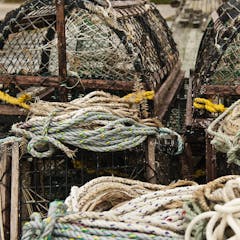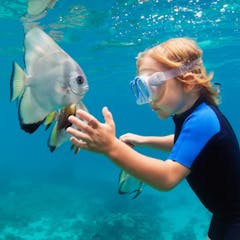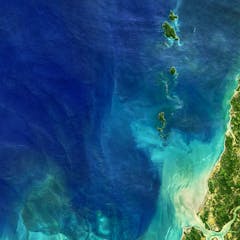
Articles on Oceans
Displaying 101 - 120 of 713 articles

Images of the 2011 tsunami did not look as I had expected, and pointed to the sublime, when experience exceeds our frameworks of understanding. My exhibit ‘Salients’ treats this theme.

A handful of wealthy states have so far monopolised the benefits of exploring the remote ocean.

The melting of the Antarctic ice sheet will contribute for a long time to sea level rise, which will test humanity’s capacity to adapt.

Over 100 shark and ray species were recently added to an international treaty, known as the CITES list, to protect them from the threat of unsustainable and illegal trade.

Pam Longobardi collects and documents ocean plastic waste and transforms it into public art and photography. Her work makes statements about consumption, globalism and conservation.

To guard against extinction, we must advocate for common species.

Climate change is making oceans more acidic globally. Now, scientists are finding that large storms can send pulses of acidic water into bays and estuaries, further stressing fish and shellfish.

In the deep, dark ocean, sunlight-deprived bacteria turn to different sources of energy: dissolved hydrogen and carbon monoxide.

Atmospheric rivers can melt fragile new sea ice. When these storms arrive in waves, the sea ice doesn’t have a chance to recover.

The ocean twilight zone could store vast amounts of carbon captured from the atmosphere, but first we need a 4D monitoring system to ensure ramping up carbon storage does no harm.

From a shipwreck to ancient dunes, these researchers created 3D visualisations of seafloor features around Australia – from as shallow as 22 metres to depths of over 4.8 kilometres.

Mining nodules from the deep ocean seabed could provide the metals crucial for today’s EV batteries and renewable energy technology, but little is known about the harm it could cause.

The idea we know more about the Moon than the deep sea is seductive – but it’s 70 years out of date.

To fish the oceans sustainably, nations must reduce bycatch, or accidental catches. But fishermen often resist changing gear or techniques that kill nontargeted species.

Sea-level rise isn’t the only climate-related problem for our coasts – extreme waves that cause flooding and erosion are also changing, but exactly how is hard to predict.

Swimming and surfing in the ocean is fun and invigorating. But sharing the water with animals comes with risks to us and them.

West Africa’s marine litter problem cannot be ignored. It can hinder the region’s economic and tourism growth, while putting people’s health at risk.

Humans are expert pattern-finders. But artificial intelligence tools are better at trawling through vast data sets to find anything from waste dumps to heat-tolerant corals.

Digital technologies have the potential to yield positive results, if co-developed and used ethically with Indigenous communities.

Some of the most powerful offshore wind is over water too deep for a standard wind turbine. Engineers found a way around the problem.
